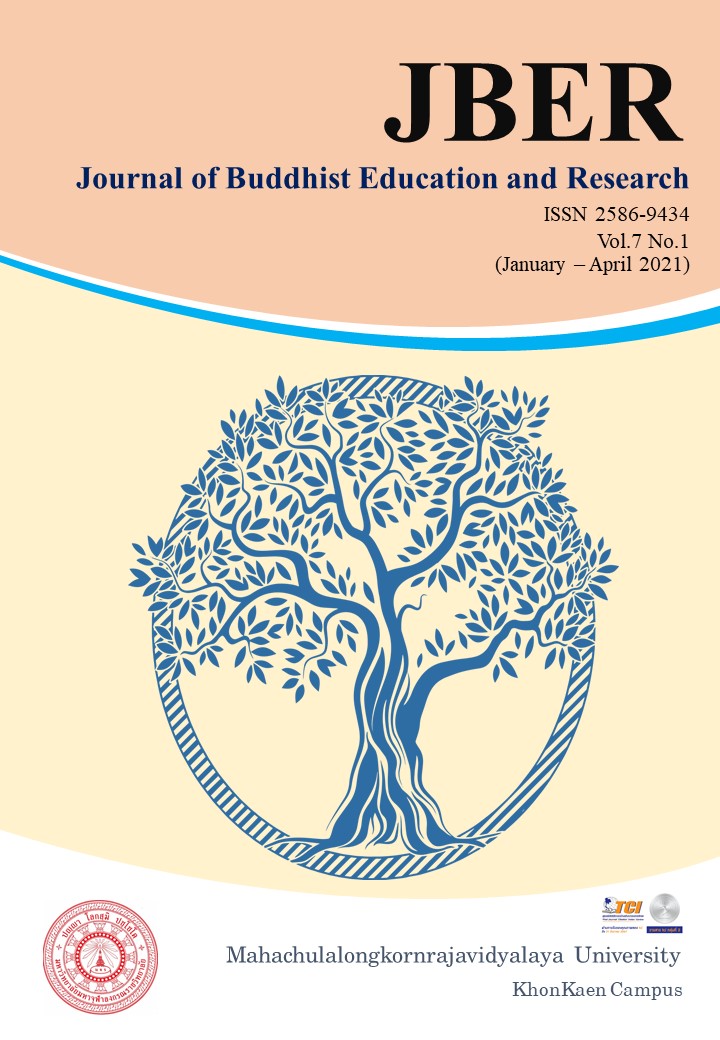SCIENCE PROJECT DEVELOPMENT TO ENHANCE THE COMPETITIVENESS OF THAILAND’S AGRICULTURAL PRODUCTION
Keywords:
Science Project, Competitiveness of Agricultural ProductionAbstract
This research is qualitative research with objectives 1) to study the current conditions and factors of science project to enhance the competitiveness of Thailand’s agricultural production and 2) to propose guidelines for science project development to enhance the competitiveness of Thailand’s agricultural production by interviewing 6 groups of informants selected from a group of students and teachers working at a high school science project. And use the information obtained to analyze the content.
The research results were found that
1. Current conditions and factors of science project to enhance the competitiveness of Thailand’s agricultural production are: 1) Most of the topics of science projects come from the personal interests of the students. 2) There are courses to produce students in different science. 3) Most of the budget for science projects comes from the personal money of the teachers-students. 4) The science project operations are encouraged for students who do science projects to reflect and share their ideas on science projects and technology with your group friends from different groups and external networks from science project contests or inter-institutional learning exchange activities. 5) The science project implementation has a mentoring system. 6) In the overall science project work, there are few projects to fix or develop in the agricultural sector and 7) The obstacles to the science project implementation are due to limitations. Of time - an unsuitable place to conduct science projects.
2. Guidelines for science project development to enhance the competitiveness of Thailand’s agricultural production are: 1) There should be an improvement in the curriculum of learning management at the secondary level. 2) There should be channels or agencies that support the transfer of knowledge. And 3) There should be an exchange of knowledge in order to get a scientific project topic that meets the real agricultural problem.
References
พัฒนาวิทยาศาสตร์และเทคโนโลยีแห่งชาติ,สำนักงาน. (2558). คู่มือแผนงานและเป้าหมายคลัสเตอร์. ปทุมธานี: สำนักงานพัฒนาวิทยาศาสตร์และเทคโนโลยีแห่งชาติ.
ยุทธ ไกยวรรณ์. (2544). เทคนิคการจัดการกิจกรรมการเรียนการสอนวิชาโครงงาน ระดับมัธยมศึกษา. กรุงเทพฯ: สถาบันพัฒนาคุณภาพวิชาการ.
รัฐศักดิ์ พลสิงห์. (2552). ตลาดกลางสินค้าเกษตรใหญ่ที่สุดของไทย. หนังสือพิมพ์กสิกร, 82(3), 51 – 60.
ลือชา ลดาชาติ. (2561). การเรียนการสอนวิทยาศาสตร์ที่เป็นวิทยาศาสตร์ ประวัติศาสตร์ ปรัชญาและการศึกษา. กรุงเทพ: จุฬาลงกรณ์มหาวิทยาลัย.
Holborn, M. (Edited). (2015). Contemporary sociology. Cambridge : Polity Press.
Jones, M. R. and Karsten, H. (2008). GIDDENS’S STRUCTURATION THEORY AND INFORMATION SYSTEMS RESEARCH. MIS Quarterly. 32(1), 127-157.
Merton, R. K. (1976). Sociological ambivalence and other essays. New York : The Free Press.





